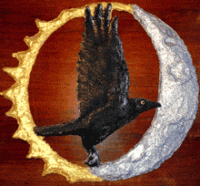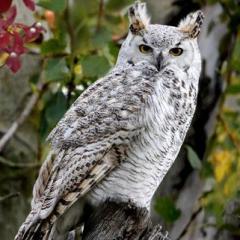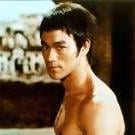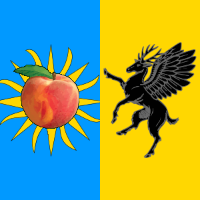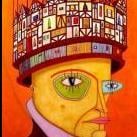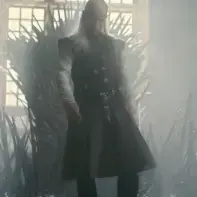-
Posts
27,866 -
Joined
-
Last visited
About Lord Varys
- Birthday 11/25/1982
Profile Information
- Most Devious 'Man' In The Seven Kingdoms
-
Gender
Male
-
Location
Definitely somewhere in King's Landing
Recent Profile Visitors
Lord Varys's Achievements

Council Member (8/8)
-
 The Grey Wolf Strikes Back reacted to a post in a topic:
Martin's other books
The Grey Wolf Strikes Back reacted to a post in a topic:
Martin's other books
-
As an ending for Abner's story it is not bad. I remembering reading somewhere that George intended to include an actual steamboat race which was then cut because he thought it would not make sense in real history + scientific vampires setting, as folks would remember the Fevre Dream then. That abandoned plot line really shows and mars the final third of the book. Yes, I think it was mainly references to rape in the war. But since you do have Dreamsongs it is easy to just read that version.
-
Just to clarify, I wasn't offering links to pirated texts but ways to get access to rare stories. Some of the stories which are not collected in books that are currently in print have been published online, among them treasures like '... For a Single Yesterday' (which anyone should read right now who hasn't so far as it is really quite good and arguably a better take on 'the golden days of hippie life' than The Armageddon Rag as it focuses on the emotional/romantic aspect of it). Also, of course, sharing or loaning or giving away books isn't piracy, either, as anyone making use of a public library or a public book case knows. It is also unfortunately not true that most of George's stories are still in print. We do have Dreamsongs, but most of the older collections are out of print for years and are hard to find (and buy) indeed. Certain stories can be bought as individual ebooks, but none of the older collections. If you want to own all of George's (collected) short story fiction you have to spend considerable time, effort, and money these days. In fact, for me it was easier to buy German translations of the collections A Song for Lya, Songs of Stars and Shadows, and The Sand Kings than to actually get a hold of the English originals. What's in print is the (fix-up) novels (even The Armageddon Rag, strangely enough), Dreamsongs, and Nightflyers (due to the recent TV show). But the latter seems to be out of print again, actually. But it is as at least permanently available in ebook form. The sad story is that Dreamsongs does not actually collect the bulk of George's short fiction. It appears like that because it is two big volumes, but it also contains all those scripts and editorials and excerpts from other works. A lot is missing, especially from the early days. Really think the book very much breaks down when we get to the 'oh, never mind them vampires, now comes the civil war and then we go back to domestic vampire squabbles' moment. There is some good atmosphere and writing there, but it is clearly a first novel (Dying of the Light basically grew out of a novella and wasn't really conceived as a novel). It has a strong beginning and middle part and decent characters and scenery. Also, I think both the primeval evil vampire monster guy is too weak in his mindless power as well as the underlying message - strength, even good strength, has to come from predatory behavior/barbarism - of Joshua's (failed) fight against the guy is something I don't like. If you take it as a concept it is like going with the idea that only meat-eaters can be good soldiers or other such crap. You have The Ice Dragon in Dreamsongs and it is better to go with that version as the picture book aims at children and was thus slightly edited. My niece liked it, though. The picture book, of course. Thinking a bit more about the stories, I think my favorite would be 'In the House of the Worm' which I read very late but it was a very intense reading experience, one of the kind you have a lot when your in your teens and twenties but not so much at a later age. But there was exploring the decaying world and the caves with Annelyn and I just couldn't put it down until I had finished it.
-
The novels show a writer learning to write. Dying of the Light is recognizably growing out of a novella, but it tackles a lot of themes addressed in his early other stories and works pretty fine in that regard. The big problem of that novel is the ending as it is akin to, say, Tyrion's story ending with him (apparently) dying on the Blackwater or drowning in the Rhoyne. You would say, 'well, in light of what came before not unexpected or totally bad, but damn hell unsatisfying'. The novel introduces concept and characters the story should have wrapped up better. Instead, it lets the (ultimate) fate of the protagonist and two other crucial characters dangling. Fevre Dream is better conceptually but suffers from a major breakdown after two-thirds where the plot drastically changes and is then led to a kind of pitiful conclusion after a time jump. That is a big letdown. But the ending works much better. The Armageddon Rag is arguably George's best novel prior to AGoT. It does have a proper ending and it does have a plot gravitating towards that. It's major flaw is the silly idea that actual leftist revolutionary would turn to occultism and the literal devil to bring about political change. That is not very likely as a concept, and if you try to pull something like that off, if you think of, say, of a femme fatale version of Che Guevara as an occultist nut who actually hopes the literal devil would help them to bring about a new world then, well, you have to laugh out loud. The book would have worked much better if the people doing the plot were more like hippies trying to get back to the golden days of yore, symbolized and expressed by the music of the 60s and early 70s. Romanticism and a longing for the lost days of youth kind of fit well with occultism and demons, not so much political revolutions. One is tempted to ask what the hell the devil's tax policy would have been... I think the scientific vampire stuff there is not so great, especially not the silly notion that a species could develop and (kind of) flourish where the women routinely die giving birth (to one child). The characters there also foreshadow a lot of the characters we see in ASoIaF, especially in the Tywin-Tyrion department. In general, though, George is a much better novella/short story writer than a novelist. His greatest works would be his later short stories/novellas (including Dunk & Egg), not so much his novels. And ASoIaF is only as great as it is because every chapter is effectively written as a short story with a punchline/twist at the end. That is mostly evident in AGoT where there are often considerable time jumps between the chapters but we also get a lot of that in AFfC which contains some of George's best prose, for instance in the Dornish chapters. But many of the earlier short stories are pretty good, too.
-

Dune part 2: the spoilers must flow (Spoilers for the movies)
Lord Varys replied to Kalbear's topic in Entertainment
I think 'the vastly so' is open for debate. Although I have to say I only read half of their Butlerian Jihad thing and,the prelude to Dune thing they did ... so I don't know how worse the other stuff was. -
I think you have to approach this differently. This society is distinctly different from anything we know. For about 10,000 years the societal order has been frozen into a perpetual status quo. There is no war in this world, as the Empire includes effectively all human settlements and there are no aliens or other enemies. Conflict, if it happens, can only happen with permission of the Guild unless it is a confined to a single planet. That should be rare, though, as the Empire consists of planetary holdings which are given to the great houses as fiefs by the Emperor. If new planets are colonized or in need of pacification then the Sardaukar would do that before a planet is granted to a great house. Conflict between great houses - which are the only legal entities which have interests that transcends a single planet - is strictly regulated by the rules of kanly. There are no or very few open wars in this world. We also have the technological power balance with the atomic weapons of the Landsraad keeping those of the Corrinos in check as well as the lasgan/shield problem which effectively means fighting among soldiers goes back to a certain type of hand-to-hand combat. Shaddam IV colluding with the Harkonnens to destroy Duke Leto is a huge breach of protocol. That means that soldiers as we know it are actually pretty rare as most planets in this setting would never see wars as we know them. The Sardaukar and Fremen's fighting skills are shaped by the environments they live in ... and those planets are both exceptional in the sense that weather and climate control means are not used to turn the planets into paradises as most or all of the other planets are. The Corrinos train their Sardaukar in a world where lots of lots of people are killed by the natural surroundings as well as by the training itself ... and the Fremen do the same. They also constantly fought each other on a monstrous world and the idea is that the people living through that ordeal are, in an evolutionary sense, best suited to survival in such harsh conditions. That is then combined with a fierce martial culture. If you read on you will see how quickly and easily the changing living conditions on Arrakis - both a milder climate and different lifestyle coming with it being the new imperial throne world - change the Fremen.
-
Yeah, the Fremen are the best fighters in the known universe and that is because of the environment they live in. Salusa Secundus, the 'prison planet' which forms the Sardaukar is also a very hostile environment which created a similar but less effective martial culture. The entire take of the new movies, especially the second part, of presenting the Harkonnens as 'colonizers with big guns' undercuts the message of the book which has the Fremen as the people totally in control of their own planet. The reason they don't drive away the outsiders is that they are not unified and don't really care about them as they only live in two very small cities. The one thing some of the Fremen later learn from Jessica and Paul are Bene Gesserit fighting skills, but they are not taught to everyone. It is the fact that the Fremen and their religious zeal are in control of everything that puts Paul in the tight corner that his own wishes and life don't really matter in the end ... the Jihad will come, regardless if he lives or dies. What the books fail to actually explain is what exactly the point of the Jihad is. What the goal is. Paul has the Imperial throne in the end, a huge majority of CHOAM shares, he controls everything and everyone. And all that wealth and power will also profit the Fremen. So why do they feel the need to butcher billions...? Don't they share the feeling that they have won already? Is it about how to correctly worship and pray to the living god and his divine sister? Is it about Fremen puritanism and superstition? We just don't know. The Jihad just sits there as an elephant in the room in Dune Messiah and we have no clue what the point or even pretext was. And the logistics of it all is also kind of weird. No great house or other powerful faction would actually want to oppose Paul openly, now that he can cut them off permanently from the spice. The Guild certainly would do what he wanted ... but if nobody is going to resist you openly why the hell would you (Fremen fanatics included) want to massacre billions of people rather arbitrarily...? If you want to read something else check out The Dune Encyclopedia after you finished book 4 (it contains information up until that point). That is really a masterpiece of 'fake history' in all its glory and really the cornerstone against which similar books should be measured against. You find something fun literally on every single page in that book. Best nuggets still are the list of all the Emperors, the article re-imagining Muad'dib as a native Fremen pretending to be a lost Atreides, or the tragic discovery of a certain Duncan ghola that Leto II is unfortunately suffering from a hereditary mental disorder... It is also great how the pre-Butlerian history of the universe is imagined, how the concept of 'Empire' is projected back in time to dominate even the history we know, and how the origins of the Bene Gesserit are traced back into the human prehistory. Have to admit, though, that I actually do like most of KJA's Star Wars novels. Those characters he gets pretty well. It is pretty clear why the Guild would do what the Fremen want. They need the spice ... and the Fremen bribe them with spice. So if something makes sense in the setting then the fact that Fremen and smugglers both can count on the Guild to turn a blind eye to their activities. Of course, there is a kind of problem in the history of the setting as I'm not sure when and how the spice of Arrakis was discovered and used to build up the Guild of the post-Butlerian feudal empire. The ban on thinking machines disrupted/greatly hindered space travel for a time, but it makes little sense to assume they only stumbled on the spice and its magical properties when they were in need of that. Rather the spice would have been known beforehand, only slowly becoming the ultimately important 'fuel' of the feudal empire as it developed. The fact that substances like spice existed would have only allowed the ban on thinking machines to be enforced (more or less) in the entire known universe as if the only means of space travel was through thinking machines then there would have been people fighting back against the ban imposed by the Butlerian fanatics. By the time of Dune pretty much everybody uses it because spice is the best substance for a number of things society depends on ... but that wouldn't have always been the case. For instance, we know that the Bene Gesserit can create Reverend Mothers using spice/water of life as well as other potentially lethal drugs. The navigators may have already experimented with other drugs until settling finally and exclusively on spice from Arrakis. The people we now know as the Fremen were Zensunni wanderers who only colonized Arrakis during the feudal Empire era, a couple of millennia before Dune, not before Butler's Jihad, so it stands to reason that Arrakis may have been a part of the feudal empire before it was actually colonized by the people we now as the Fremen. Then we would see the Guild helping the Zensunni to find a home on Arrakis for some reason, while at the spice was already harvested on Arrakis. In fact, I just checked that the Dune Encyclopedia has the Fremen been brought there only about 4,000 prior to Dune, both to give them a home and to have an independent means of access to the planet and its spice. The Fremen were designed to live on that planet, having gone through many hardships on other worlds before, including a stint on Salusa Secundus. Arrakis as a planet is a fief the Emperor hands out. It stands to reason that sometimes the Corrinos themselves did some of the hard work there (or some princes from cadet branches) or that the need to hand out Arrakis as a Imperial fief with a lordly overseer only arose at a time when the need for spice in the entire empire was so great that it really had to flow constantly. Before that, the Guild may have allowed may independent contractors to do spice-mining on Arrakis, especially at a time when the planet was not yet fully colonized by the Zensunni.
-
Not sure if there would be any sense to having a cloaked Nettles appearance rather than properly casting her already for season 2. If they want to properly depict her bonding with Sheepstealer there would be some tweaks to her story in any case as she must have had a sponsor for her dragon adventure. Nettles grew up as a poor dockside whore, she wouldn't have the funds to feed dozens or scores of sheep to a dragon before she claimed him. That is part of the reason why they might have postponed her introduction because she might be somebody who is either pushed to make an attempt (because they know she has Targaryen blood and tell her) or they help her to go through with her plans. The show also better tell us who Ulf and Hugh are, and how they end up thinking it would be a good idea for them, specifically, to try to mount dragons. Unlike the books - where a dragon is more or less yours from the moment you first mounted him successfully - the show has this as a process and a bond that doesn't necessarily include total control at all times as Aemond-Vhagar and Luke-Arrax showed. (Dany's problems mastering Drogon completely in ADwD indicate that the books might also include such complexities.) However, the setting means that only people who are reasonably sure they have Targaryen blood would be given access and permission to try to claim the dragons, so Ulf and Hugh will likely either know something about their (immediate) ancestry or be told something about that. The show had Daemon prepare Vermithor for a future rider, so Hugh better not be some random dude with very distant Targaryen ancestors but rather, say, another grandson of Jaehaerys I. With Nettles chances for her casting are very low because we now know who plays Ulf, Hugh, and the Hull brothers. Why tell us this but not who is playing Nettles? And for Daeron it is a given that we would have either had reports about scenes featuring him or casting reports/rumors about other Oldtown characters from his story line.
-
It is not just that, it is also that there are no spy reports about scenes being shot at Oldtown or a Reach setting ... nor casting rumors or confirmations about characters we would see if we were to see Daeron at Oldtown, meaning Lord Ormund, his wife Lady Sam, his son and heir Lyonel ... all or some of which we would expect to see with Daeron in an Oldtown setting. He would need some people to talk and interact with. And if we had Daeron paying KL a visit - say, for the funeral of King Viserys I or later Prince Jaehaerys - then we would have good reason to expect that to have been revealed in the spy reports we got so far as they covered a lot of scenes in KL, especially big outside scenes involving many extras and crowds. At this point we should indeed have casting confirmation as we would have for Nettles. Both Daeron and Nettles are crucial characters people want to see and ask about, and it makes little sense that they tell us that they cast the other dragonseeds and (so far) tertiary characters like Ser Alfred Broom ... but not Daeron and Nettles.
-
That is factually wrong as not merely George confirmed that Daeron is in the show but also Ryan Condal ... and he did it repeatedly. We also have the final opening credits from the first season which do not only depict Daeron as existing and alive, but also Prince Maelor. That was clearly a creative decision by the people making this show wanting to send the message to the audience that certain people actually do exist within the show universe. Chances are about zero that this show eventually depicts the fake Daerons George has first actually write about. While it is very likely they turn up during the reign of the Dragonbane, even that is not clear yet. There could also be some aged fake Daeron who pops up during the reign of Baelor the Blessed or the Unworthy. The impression is indeed that they change the chronology in the book to unfold in a different manner, more in steps and not at the same time. I think the idea behind that might be that the war will escalate only slowly, with folks in the Reach (Lord Ormund Hightower included) being not eager to rush into war. We also have that to a point in the book since Jason Lannister has to be commanded by Aegon II to marshal an army and try to defeat the Black lords in the Riverlands. Chances are that the show will depict the Black Reach lords to marshal armies to attack the Hightowers only later, with that then resulting in Ormund raising his host, leading to the Battle of the Honeywine and the aftermath. But I'd not be surprised if they start to build up slowly for the Reach plot at the end of season 2 ... like they should do with the Ironborn plot and, it seems, they are doing with the Gullet plot as we are supposedly going to see the Council of the Triarchy in Tyrosh. They could even have Otto going there physically to give him something to do after he is fired.
-
Otto and Aemond and now, perhaps, between Aemond and Alicent's brother Gwayne. But I'd imagine we are likely also going to get talks between Alicent and Gwayne and general conversations about the Hightowers back in Oldtown. They will have to explain why Daeron did not accompany Gwayne to KL and also why Lord Ormund is right now, apparently, not raising an army to defend Aegon II. As I said, Ormund being married to Samatha Tarly (a Black supporter) could slow things down in Oldtown. It might also be that Lord Ormund isn't as invested in pushing a Hightower agenda at court as his father was ... or he feels less beholden to Alicent and Otto as his father was. Could also be that Otto wasn't all that popular with his brother's son and heir in Oldtown. He may have been quite frustrated and not exactly the best uncle during his 10+ years a former Hand and landless knight living off his brother's generosity.
-

House of the Dragon: The Black & Green Trailers
Lord Varys replied to Westeros's topic in House of the Dragon News
Sure, but the book actually gave us the backstory for that, while the show only gave us a backstory for the name of the Green faction. The name of the Blacks is equally significant and as the Targaryen colors are actually red-and-black even the book didn't really make it clear why the faction name was 'Black' rather than 'Red'. Rhaenyra Targaryen dramatically dressed in red-and-black at that anniversary tourney in 111 AC, not only in black. I guess it was a black gown with red embroidery or something along those lines, but that is actually never established in the text. I imagine there were some lines cut establishing Rhaenyra's faction as the Blacks ... but just naming an episode 'The Black Queen' doesn't establish anything. In fact, it is likely to confuse the audience not knowing the source material as the episode as such gives no significance 'the blackness' of Rhaenyra's queenship. It didn't explain in what sense Rhaenyra was or is a 'Black Queen'. And I'd also prefer it if Rhaenyra's personal sigil during the war wouldn't be turned into a black dragon or something like that (that is for Daemon Blackfyre). The Targaryen sigil is actually a red dragon, not a black dragon. And George actually had a nice and complex idea with Rhaenyra including her mother's Arryn falcon and Laenor's Velaryon seahorse into her personal sigil. It looks pretty well and season 2 should take the time for Aegon II choosing his golden dragon and Rhaenyra her own personal banner. But the time to explain/introduce the Blacks as a court faction was season 1, not season 2. -

House of the Dragon: The Black & Green Trailers
Lord Varys replied to Westeros's topic in House of the Dragon News
Considering Daemon's fickle personality it should have been rather easy to hand him to rope to hang himself. One way could have been to drive a wedge between him and Rhaenyra by having some young maiden seduce him ... something Nettles may have succeeded at during the Dance without any Green help. There are also a number of ways to get Viserys to exile him yet again - most noteworthy his marriage to Rhaenyra which was done without royal permission (something that led to Daemon's exile before when he married Laena). No indication that Alicent or the returning Otto tried to play that card. It also strikes one as rather strange that the aging and ailing king could not be persuaded to change the succession in favor of Aegon after the Rhaenyra-Daemon marriage as Rhaenyra was originally named heir to prevent Daemon from gaining royal power. But the obvious way to get rid of Daemon would have been to kill him. Either by way of poison or by arranging an accident. The man was a dangerous warrior, but even they can be killed. And killing Daemon and/or Rhaenyra is certainly preferable to plunging the Realm into a civil war by way of a badly planned and poorly executed coup. All true ... but we know or have some reason to believe that certain people may have gotten away with arranging the murders of Laenor Velaryon, Harwin and Lyonel Strong. And, of course, the Greens to plot the vilest treason by way of staging a coup. A clandestine murder needs less accomplices than the kind of coup Alicent and Otto plot in the book (and Otto in the show). They/he has to trust his buddies on the council and many other people executing the plans. That was a mad solution if the prime motivation was to get rid of Daemon whispering in Rhaenyra's ear. My point remains that you only stage a coup and only crown your own monarch if that is what you want. Self defense by usurpation is a silly scenario. You also get that in the ridiculous arguments defending Renly's attempted power grab as a way motivated by him fearing that the Lannisters would kill him. Yes, such motives could also play into such actions to a point, either as a lesser motivator or a justification, but you only start a movement or invest all your political capital, power, and money into a bid for a crown if you actually want that (for your pretender). If you are merely afraid for your life or the reduction of your or your family's power and prestige you have other, less suicidal ways to get what you want, political assassination being the main option. And the idea that in the show setting Alicent, Otto or the Greens in general are motivated by fear of Daemon is simply not actually in the show. None of them ever actually expresses the fear that they will be killed by Daemon, specifically. Otto tries to feed Alicent the idea that Rhaenyra will have to murder Aegon and his brothers to solidify her power, and Alicent also pushes that idea onto Aegon ... but neither ever mentions or talks about Daemon in that context. Instead, we have Rhaenyra being reluctant to go to war/push her claim against Aegon's while Otto actually planned to murder Rhaenyra and her entire family to ensure a smooth succession until Alicent shut that down. The writers could have played up Alicent genuinely fearing for the lives of her children or Otto fearing for his own in the wake of Rhaenyra marrying Daemon ... but that is not actually in the show. Nor do the characters in-universe care much for the murder of Rhea Royce as an indication that Daemon might continue to murder family members (possibly in part because nobody actually witnessed Rhea's death). Hopefully the writers are smart enough to have the Rhea thing come up in future Vale plot lines, possibly even having the Royces declare for Aegon II to have some smaller battles/campaigns in the Vale which help explain why Jeyne only assembles huge armies at the end of the war. A big blunder in the writing of the show is that the alleged murder of Laenor doesn't play into the fears and beliefs of Alicent, her children, or other characters. We have Rhaenys and Corlys kind of believing Rhaenyra had their son murdered, but get Vaemond only depicted as a greedy guy obsessed with what he sees his birth right ... when they could have easily enough written him as a man who (also) wanted to avenge his nephew's murder. A big problem there is the scenario of Laenor's fake death presented as a murder in a context where Rhaenys and Corlys believe Rhaenyra and Daemon murdered their son. They would have never just ignored that but either arranged Rhaenyra's and Daemon's murder in turn (if push came to shove via the Faceless Men) and/or turned Green. The idea that they would 'stay neutral' for a time in such a setting makes little sense. In that sense the (alleged) death of Laenor should have been an affair that looked very much like an accident with only fringe conspiracy theorists - which would not include Rhaenys and Corlys - believing that foul play was involved. Rhaenyra and Daemon rushing into their wedding without a proper mourning period could have been enough for them to have cooler relations to them ... not to mention the whole Strong boys issue which could also have been a bigger issue for at least one in the couple (not Corlys as he is also proud of his grandsons in the book). -
While all that is true, the details of the claiming of that particular dragon strike me as less relevent (or easily changed if the writers had decided to race through the plot to the finish line) than the introduction of Nettles the character and her eventual connection/relationship/whatever to Daemon. In the book Daemon sits on his hands at Harrenhal for months, that is something the show could change and have him fly back to Dragonstone to plan the attack on KL. If that were to coincide with Nettles claiming Sheepstealer we could see them interact prior to the Gullet or before the fall of KL. We can expect the show not to waste lots of episode of them flying together through the Riverlands and spending many evenings/nights at Maidenpool. We should expect some of that, but it would make more sense to give the entire plot time to develop at different general story points. More importantly, the show also should take time to set up the Hull boys properly and, especially, Hugh and Ulf as their betrayal is something that should have substance in the show since the writers can't wiggle out of giving them depth and character by way of saying they were illiterate and never explained their intentions. It makes sense that Gyldayn's sources would paint baseborn bastards and commoners as the worst kind of people ... but this is not the road the show has to take. Or at least the show can make them more three dimensional. (I'm not saying they should necessarily tone down the monstrosity of some of Hugh and Ulf's crimes at Tumbleton.) As we know by now there was at least one cut scene in season 1 referencing Daeron ... and I'd say that mentioning him wasn't optional in season 1, it was mandatory and it is a mistake that they didn't do it as he is an integral and crucial part of the royal family. You could even say it was a mistake to not show him as they could easily have used a child actor who is never going to be used again. Unless I'm mistaken the ages of the younger children are kind of messed around with, anyway. By episodes 4-5 we only have Aegon and Helaena, and while Aemond may have been conceived in the night of the Viserys-Alicent sex scene we get in episode 4, Aemond, Jace, Luke, Baela, and Rhaena are all much closer in age in the show than they are in the book (which is all a result of Rhaenyra being of the same age as Alicent which meant that less time would pass between Alicent and Rhaenyra being married). That means little Daeron could have easily enough been seen as a toddler in Alicent's chambers in episode 6 or even 7 with his fostering at Oldtown being established in dialogue. In any case, though, chances that show Daeron is closer in age to Joffrey than to Jacaerys is quite likely. The chance that Daeron would not be mentioned in season 2 is ludicrous. If they don't reference him, Ormund, Lyonel, Lady Sam and others at all then they could just as well drop the entire Reach plot, as any actual scenes taking place at the Hightower/Oldtown should depict those characters. One imagines that Gwayne Hightower will set up the future Reach characters and plots, starting with establishing that Otto's brother is now dead and there is a new Lord of Oldtown. It would also make sense to make more of Lady Sam's Black leanings and have the main branch of House Hightower not be overly keen to get drawn into a fully fledged civil war. The decision to move the Reach plot to season 3 would work better if Sam were able to persuade Ormund to try to keep Oldtown out of trouble. It also strikes one as likely that season 3 will first continue with the Riverlands plot, moving then to the Ironborn plot and having the Reach plot up until the Battle of the Honeywine (including a proper depiction of the Black Reach houses marching against Oldtown) before turning to the Battle of the Gullet and, eventually, the Fall of King's Landing. What we know of season 2 so far indicates a very slow pace, taking time for character development and people processing events.
-
 wiedzma reacted to a post in a topic:
My Interpretation of Aegon II’s character in the show.
wiedzma reacted to a post in a topic:
My Interpretation of Aegon II’s character in the show.
-
From what we know or I think I heard is that neither Daeron nor Nettles have been cast for season 2. But the story doesn't seem to advance very far. The dragonseeds can claim their dragons over a longer period of time in the show, meaning Nettles might come into the fray only in season 3. Even in the book the Sowing likely wasn't over in a fortnight. It might have never actually ended as, say, would-be dragonriders might have continued to search for the Grey Ghost until his death, etc. The text even has them bring up new dragonriders at the first Black Council ... and then they apparently don't do anything in that regard for an entire year. Also, it is a great idea to build up Hugh and Ulf and their eventual betrayal slowly. Hugh, especially, wants to be king eventually, a process that slowly developed over time. Condal has said, I think, they will depict the war as something where many people think they have to choose between Rhaenyra and Aegon ... while others think they might make even better kings. One of those clearly seems to be Aemond, especially during his time as Prince Regent (a position he might actually be determined to never give up again), the others would be Hugh and Ulf, eventually. The show might very well portray one of them as Rhaenys' half-brother (Aemon's bastard) while the other could be Daemon's half-brother. Daeron should definitely be mentioned a lot in season 2 if they don't show him yet. It is odd to postpone his appearance yet again, but it seems they moved the entire Reach fighting plot to season 3, not just Daeron. Season 2 is going to focus on fighting in the Crownlands (Rosby, Stokeworth, Duskendale, Rook's Rest), the Riverlands (Harrenhal, Battle of the Burning Mill, possibly culminating the Battle of the Red Fork), and some additional Vale and North stuff (no fighting there, apparently). But if they moved all the Reach stuff to season 3 they are not likely to rush the Fall of King's Landing, meaning season 3 might feature Reach stuff up until the Battle of the Honeywine before the Battle of the Gullet and/or the Fall of King's Landing. Then they also have to get to the Ironborn stuff which I don't think they want to cut, either. But they might only get involved after Jason Lannister's death leaves the West defenseless.
-

House of the Dragon: The Black & Green Trailers
Lord Varys replied to Westeros's topic in House of the Dragon News
Again, even if we go with your idea there ... why not just destroy Daemon in the years between his marriage to Rhaenyra and Viserys' death? He is not the heir and he can be ruined, exiled (again) or killed. There are precedents for such murders. This would be infinitely easier than a coup or succession war since the latter will involve much more bloodwork and kinslaying to keep Aegon on the throne. Rhaenyra and her entire bloodline have to go then ... as show Otto correctly points out. The point of making Aegon king is to make Aegon king. That is the agenda, and nothing else. If Alicent were truly afraid for the lives of her children because of Daemon she would have found a way to get rid of him. She effectively runs the government in episode 8 ... and years ago her foot sex buddy killed two crucial men very easily and effectively. The idea that Rhaenyra can only sit safely on her throne when Alicent's sons are dead is not suggested by either book or show. Rhaenyra is the chosen and anointed heir as per royal decree. It doesn't hinge on her not having trueborn (half-)brothers. Alicent's children would be safe unless they plotted treason. If it were different, Viserys I himself would have found ways to neutralize Aegon, Aemond, and Daeron (say, by sending them to the Wall, make one of them a KG, maester, septon, etc.). Vice versa it is not the same as the show itself depicts. Rhaenyra and her bloodline have to go because they are a threat to Aegon since Rhaenyra was the chosen and anointed heir. That is what Otto says. Rhaenyra and Daemon never have such thoughts, nor does Alicent truly believe stuff like that (in episode 6 she tells Aegon shit like that to cut him off from Rhaenyra's sons, but she doesn't really believe that). But to be sure ... the show didn't turn the two women into besties. We only have their honest reconciliation in episode 8 which is then followed by the deathbed word ... which give Alicent final permission to crown Aegon. She now is not an evil bitch turning against her late husband the moment he dies ... she genuinely thinks they were both on the same page in the end. Book Alicent's portrayal is that of a willing seductress (possibly sleeping with Viserys prior to Aemma's death) marrying a man she clearly never loved (we can draw that both from Viserys' rotting in his bedchamber as well as from post-Dance Alicent never taking about her husband). There is little indication in the book that her father pushed her into things against her will. Her reading exploits with King Jaehaerys I show that she had a lot of ambition and agency on her own ... there was nothing the Hightowers or Otto personally could gain from having his daughter care for the senile old man. This is the narrator telling us that Alicent Hightower wanted to be close to royalty. She is conceived as a Targaryen groupie, basically. Later on Alicent and her inability to get along with her stepdaughter is what sows the seeds of the Dance. It is her character flaws that are the problem, her toxic remarks, her unwillingness to accept the decree of her lord husband and king. Otto might play a minor role there in the book, too, but he is gone when things really sour between Rhaenyra and Alicent and he also had nothing to do with ensuring the children would not get along with each other. Book Rhaenyra might also share a portion of the blame there, but she is never portrayed as the active party. No records about toxic remarks from her or her side. More glaring are things in the book because of the age gap between the two women - no 7-14-year-old is to be blamed for not getting along with her stepmother if said stepmother is ten years older. There are such things as the accountability of adults as compared to childish behavior of ... children and adolescents. Alicent could have won Rhaenyra's love or at least affection. They could have worked as a family. That they did not is, as per the narrative, Alicent's fault. With the incest thing going on there were quite a few ways to tie the branches of the family together ... but that wasn't what she wanted. Her only goal was to make Aegon king, not to make, say, a son or grandson of Jacaerys and Helaena king. This is why the template of the book Alicent actually seems to be Livia from I, Claudius. Alicent is the evil stepmother who wants to push aside her stepdaughter (and her children) for the benefit of putting her own (favorite?) son on the throne. That is the only agenda, and everything else serves that endgame. Alicent's feigns affection and love to Viserys but only uses him as an instrument to get what she wants, not caring for his wishes. The show made things more interesting by making Rhaenyra and Alicent not die-hard enemies from some years after the birth of Aegon and Aemond but made things more complex. They also retained the complexity George included in the narrative - which most people either ignore or overlook - that Otto Hightower was actually the architect of Queen Rhaenyra. He made her the Heir Apparent. In the show Alicent partially retains that view, a view that was her father's originally. That all said - I also don't like the lack of Alicent's ambition. Her being unhappy with her role as queen is silly. That is what she wanted - or should have wanted in the show, even if she didn't love Viserys - it shouldn't have been something her father pushed on her with her not being able to feel comfortable in that role years after her marriage and some time after the birth of her elder children. But things like the Green Council cutting her out because she was the woman actually do make sense in a scenario where she is not actually an evil scheming bitch feigning affection and love for the king while secretly plotting with her evil cronies all the time. Still, I'd have preferred it if Alicent's role as queen had slowly pushed her into a position where she was ordering around her father and the council rather than being treated as a pawn by them. They could have still made coup plans behind her back ... only for them quickly realizing that this was a grievous mistake when Alicent learned what they were doing.


